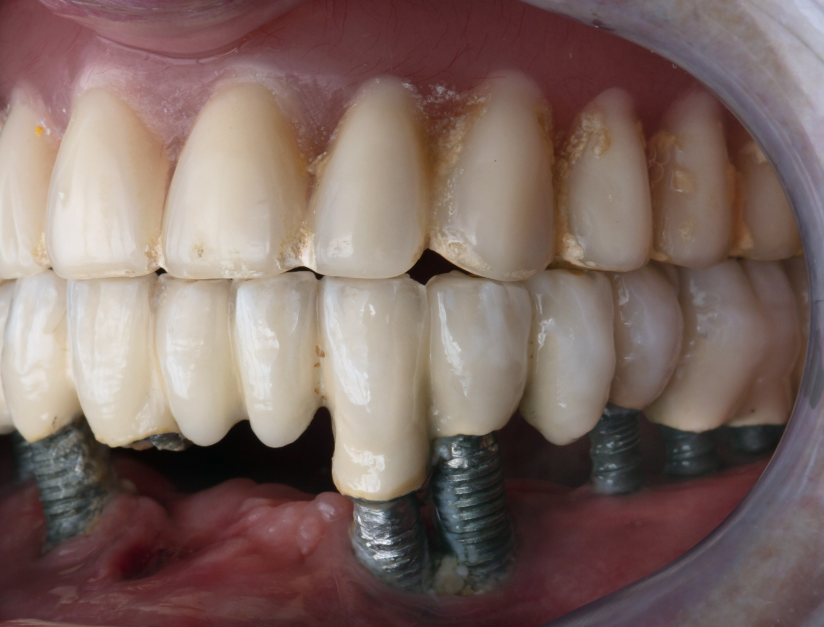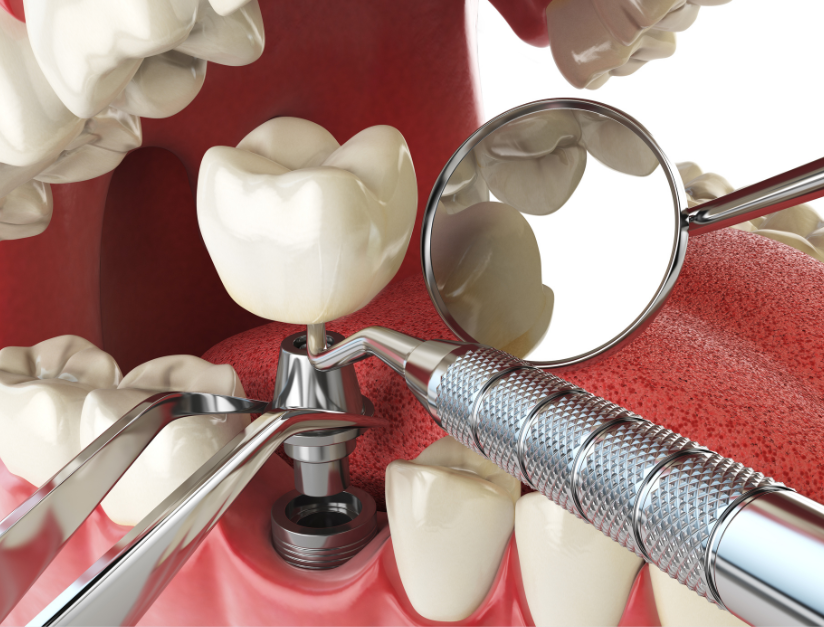Understanding Dental Crown Types for a Healthy, Confident Smile
If you’ve been told you need a dental crown, don’t worry—you’re not alone. Dental crowns, also called tooth caps, are one of the most common restorative dental treatments. Whether you need to protect a damaged tooth, restore a root canal-treated molar, or improve your smile’s appearance, knowing the types of dental crowns available can help you make the right choice.
At Royal Oral & Dental Clinic, we believe in patient education and informed choices. Let’s explore the various types of dental crowns, their benefits, costs, and when they’re most effective.
What Is a Dental Crown?
A dental crown is a custom-made cap placed over a tooth to restore its shape, size, strength, and appearance. Crowns are often used when a tooth is cracked, broken, or weakened by decay or a large filling.
Most Popular Types of Dental Crowns
Below are the most widely used types of crowns, each suited for different needs:
Zirconia Crowns
Zirconia crowns are highly durable and aesthetically pleasing. They are made from zirconium dioxide—a strong ceramic material.
- Best for: Back molars, root canal-treated teeth
- Advantages: Extremely strong, natural-looking, biocompatible
- Disadvantages: Costlier than metal or PFM crowns
Porcelain-Fused-to-Metal (PFM) Crowns
These crowns combine the strength of metal with the beauty of porcelain.
- Best for: Both front and back teeth
- Advantages: Strong core, aesthetic outer layer
- Disadvantages: May show a grey line near the gums over time

All-Ceramic or All-Porcelain Crowns
These are made entirely from ceramic or porcelain and are ideal for front teeth.
- Best for: Visible front teeth
- Advantages: Natural translucency, metal-free
- Disadvantages: Less durable than zirconia or metal for back teeth
Metal Crowns
Made of gold, nickel, or other metal alloys, these crowns are known for their strength.
- Best for: Molars and non-visible teeth
- Advantages: Long-lasting, resistant to wear
- Disadvantages: Metallic appearance, not aesthetically pleasing
Resin Crowns
Resin crowns are a budget-friendly option but not very durable.
- Best for: Temporary use
- Advantages: Affordable, easy to prepare
- Disadvantages: Wear down easily, prone to fractures
How to Choose the Best Crown for Your Tooth
Factors you should consider include:
- Tooth location (front or back)
- Your bite pressure
- Allergies to metal
- Your budget
- Aesthetic needs
Zirconia or porcelain is best for visible front teeth, while PFM or metal suits back teeth requiring more strength.
Dental Crown Cost in India (2025 Update)
Prices vary depending on the material and clinic location:
| Type of Crown | Estimated Cost (INR) |
|---|---|
| Zirconia Crown | ₹8,000 – ₹18,000 |
| PFM Crown | ₹4,000 – ₹8,000 |
| Ceramic Crown | ₹6,000 – ₹12,000 |
| Metal Crown | ₹2,500 – ₹6,000 |
| Temporary Resin Crown | ₹500 – ₹2,000 |
Procedure: What to Expect When Getting a Dental Crown
- Initial Consultation – Includes examination and X-rays.
- Tooth Preparation – The tooth is reshaped to fit the crown.
- Impression or Scan – For a perfect crown fit.
- Temporary Crown – Provided until the permanent one is ready.
- Final Fitting – The permanent crown is cemented.
How Long Do Dental Crowns Last?
With proper care, dental crowns can last:
- Zirconia: 15–20 years
- PFM: 10–15 years
- Ceramic: 8–12 years
- Metal: 20+ years
- Resin: 1–2 years
Aftercare Tips for Dental Crowns
- Brush twice a day with fluoride toothpaste
- Floss daily (especially around the crown)
- Avoid chewing hard objects (ice, pen tips)
- Schedule regular checkups at Royal Oral & Dental Clinic
When Should You See a Dentist?
Visit your dentist if you experience:
- Sensitivity near the crown
- Loose crown
- Pain while chewing
- Swelling around the gum line

Frequently Asked Questions (FAQs)
1. What are the most common types of dental crowns?
The most common dental crowns include porcelain crowns, metal crowns, zirconia crowns, E-max crowns, and PFM (Porcelain Fused to Metal) crowns. Each type has its own pros and cons depending on the location of the tooth and the patient’s preferences.
2. Which is the best crown for front teeth?
For front teeth, porcelain crowns or E-max crowns are often recommended due to their excellent aesthetics, translucency, and ability to blend naturally with other teeth
3. Are zirconia crowns better than porcelain?
Zirconia crowns are stronger and more durable, making them ideal for molars. However, porcelain crowns provide a more natural appearance, especially for front teeth. The best option depends on the location and your personal needs.
4. How long do dental crowns last?
Most dental crowns can last between 10 to 15 years, and sometimes longer with good oral hygiene and regular dental checkups.
5. Are dental crowns painful?
Getting a dental crown is not typically painful. Dentists use local anesthesia to numb the area during the procedure. You may feel slight sensitivity or discomfort afterward, but it usually subsides within a few days.
6. What is the cost of dental crowns in India?
The dental crown cost in India varies depending on the material used:
- Metal crowns: ₹1,500 – ₹3,000
- PFM crowns: ₹3,000 – ₹6,000
- Zirconia crowns: ₹8,000 – ₹15,000
- E-max crowns: ₹10,000 – ₹20,000
Always consult your dentist for exact pricing and available options.
7. Can a crown fix a broken tooth?
Yes, a dental crown is commonly used to restore broken or cracked teeth by covering and protecting the damaged tooth structure.
8. Do crowns look like real teeth?
Modern ceramic and porcelain crowns are designed to mimic the natural look of teeth in terms of shape, size, and color, making them virtually indistinguishable.
9. Can I eat normally with a crown?
Yes, once the crown is cemented and settled, you can eat most foods. However, it’s advisable to avoid very hard or sticky foods to prolong the life of your dental crown.
10. What is the difference between a crown and a cap?
There is no difference—a dental cap is simply another term for a dental crown. Both refer to a protective cover placed over a tooth.
Call to Action (CTA)
Ready for a royal smile? Book your dental crown consultation today with Royal Oral & Dental Clinic!
Call us or 📍 Visit our clinic in Mumbai for world-class dental care.
Contact no. = +91 90268 02954
Website = https://drdeepeshgupta.com/

